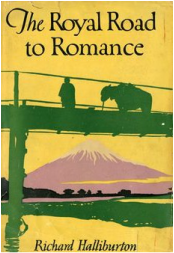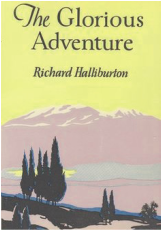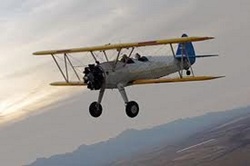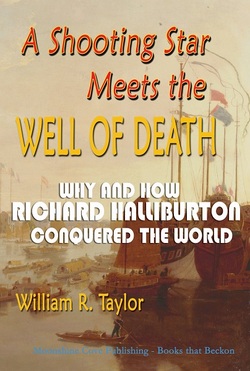


Richard’s father, Wesley, who was his sometime editor and full time defender, also commented that his son sometimes threw a bit of “red paint” on his narratives to make them sound more dramatic and exciting but, like Stephens, he pointed to the originality and daring of his son’s many genuine adventures as a sort of compensation.
For the most part Halliburton ignored the ridicule of the Press over the years but he deeply resented their wholesale labeling of all his adventures as bogus. He finally lost his cool and struck back at those critics in a 1937 Sunday newspaper supplement in which he categorically countered the charges of exaggeration for many of his most memorable feats.

I found his protests were logical and convincing but because he put them to print so long after the fact they probably didn’t alter the opinions of many of his critics. In my view it was unfortunate that he had to make this public defense of his claims at all, considering that he accomplished so many feats of considerable consequence. I summed up my feeling of regret this way in my book:
“But even his most ardent supporters would have to admit there were occasions when Halliburton was selectively objective when he wrote about his experiences. For a man whose life was chock-full of legitimate feats of daring and courageous accomplishments, his occasional inventiveness is unfortunate because it caused the line between fiction and reality as he reported it to always be blurred.”

William R. Taylor, author.
 RSS Feed
RSS Feed